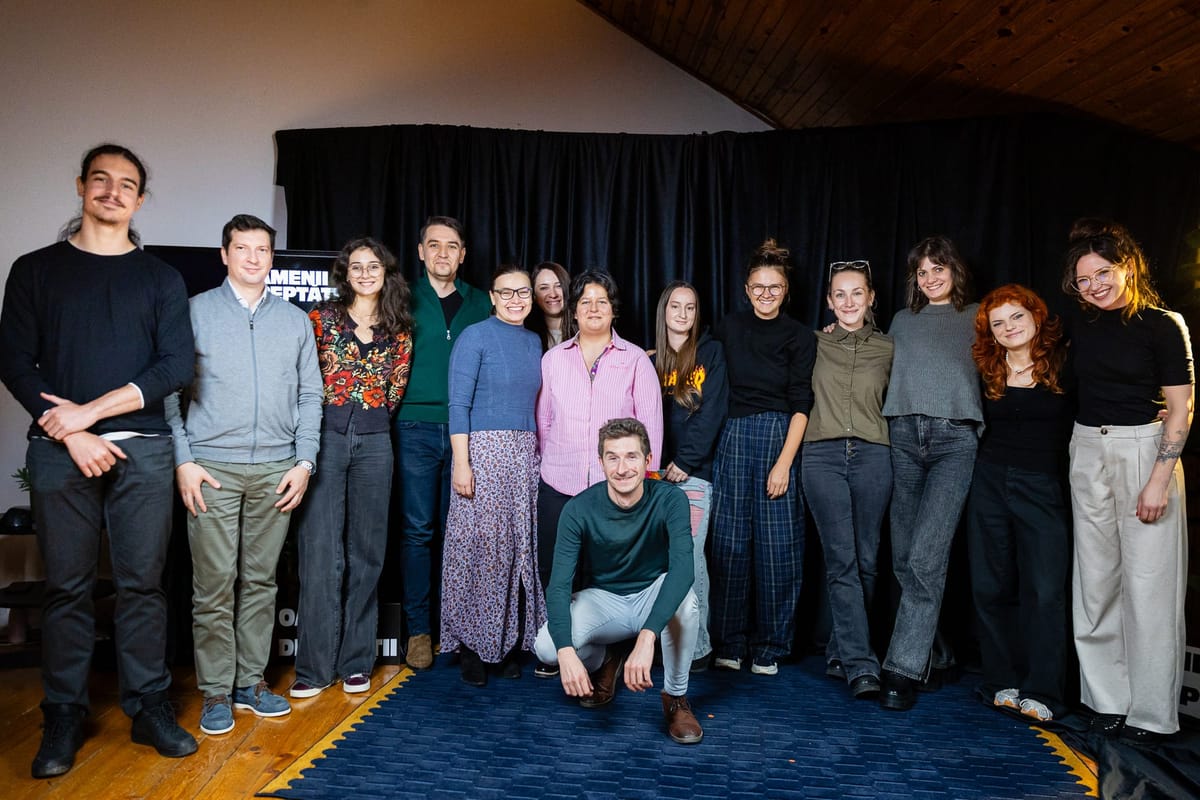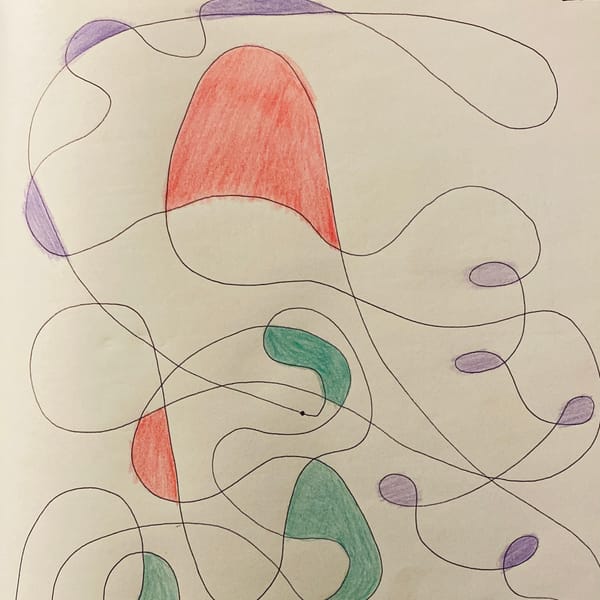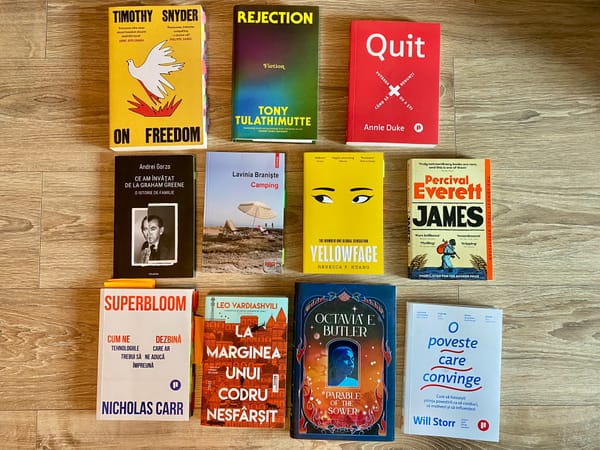Draft Four: A weekend miracle
Is there still room for stories in our lives?

For years I've entertained a personal theory of change. If we tell ourselves intimate stories about the people and world around us, we'll grow closer. It defined my mission and my work, and it's something that shaped me. Hearing the stories of others has made me a better person, hopefully more understanding, kinder, more tolerant, less stupid, more aware of everything I don't know, less fearful of strangers, more prone to trust than skepticism.
These letters are partly a chronicle of a crisis of confidence, of this theory being shaken by everything around us: people being torn apart by stories, narratives crafting reasons for invasions and genocide, algorithms shattering attention alongside our capacity to be attentive to the fullness in the lives of others.
This crisis is not kind on me.
To be fair: what makes a story work is still there, because we're hard-wired with it. The particular as a stand-in for the universal. The tension that grabs attention. The promise of revelation as the plot unfolds. The need, as the Cohen brothers put it in a movie, to hear stories about us, where the main characters going through something are not actually us.
Or, to put it differently, storytelling is a tool, and it's neutral. Jonathan Gotschall has written both about the capacity of stories to be a force for good (in The Storytelling Animal), but also to cause harm (in The Story Paradox). In the latter, he delivers a an accurate summation: “Story is a precious tool for teaching and learning. But this also makes it a perfect tool for manipulation and indoctrination.”
Today, it's mostly used for nefarious purposes. The crisis comes from also feeling less and less of its capacity to do good, because I've also been feeling that people don't have the bandwidth – either in their hearts and minds – for the stories of others. And a lack of stories brings with it a lack of connection, which in turn leads to forms self-absorbed alienation.
How far this alienation can go is largely the plot of Naomi Klein's gutwrenching Doppelganger, a book that explores both the author's relationship with a writer people often confuse her with, but also our deeper relationship with our mirror selves, or the mirror worlds that politics and technology and pandemic-isolation have shaped.
"[We] want separation and distinctness, and we want unity and community", Klein writes towards the end. "The tension is fruitful and does not need to be resolved. The problem lies in the fact that our culture is so biased toward one tendency over the other. It’s the scramble for separateness that is richly rewarded and encouraged in our zero-sum economy, while the urge to act in solidarity and mutual aid with others is discounted and disappeared, when not being actively punished."
Solidarity, mutual aid, togetherness, teams, require presence, and listening, and sacrifice. Stories work as a glue for these. Yet what many of us are bringing to the table is scattered attention, opportunism, and selfishness disguised as self-care.
I haven't given up faith in the possibility of stories being a glue, a guide, a bridge, an empathy gym, a call to action. But I've come to believe it now also takes a bit of a miracle for it to happen.

I've lived through a bit of a miracle this weekend, and I don't want to let it go by unseen.
It was the second weekend of a small storytelling program designed to bring together journalists, lawyers, doctors, and civic activists, to discover and shape a story about a wrong that they would want to right in the world.
In the first weekend, we awkwardly experienced the tentativeness of being in a room for hours at a time, of having to listen with attention, speak with intention, and care for the whole. It's so easy to disengage, or drop out because something better came along. (Including – or especially! – notifications on our phone). We also drafted a first version of personal stories that, in many cases, were almost like personal mission statements, either a story about why I do what I do, or the story of the current struggle I'm engaged in the world.
This weekend, we rewrote, and we read polished versions to each other – 800-1.000 word essays that blended anecdotes and reflection, vulnerability and courage.
We heard the story of a young mother wondering aloud about the world she is raising her daugter in, while at the same time feeling guilty for not being out there more often to shape it. A young climate activist who has found a cure for his eco-anxiety in volunteering to make Bucharest more livable. A lawyer feeling shame for losing a case even though he did the best he could, just because he found one of the small percentage of judges who are ill-equipped and ill-willed. A human rights activist describing coming out as a lesbian in a Romania that is increasingly intolerant of her community. A sister recounting the discrimination faced by her younger sibling who, at 20, remains isolated and unseen. A doctor who has to break terrible news to patients every day, talking about empathy being something you choose – again, and again, and again.
And there is more.
We laughed, we cried, we saw one another.
Many of these stories could also be published. They could also be recorded as videos. Some might land with a specific audience. But I wonder (in my crisis of confidence mode): would they attract more than a few stray travelers? Because they do something that has become rare: they invite in, they make room, they don't break things, they don't demand attention through generating and sustaining fear. If they advocate for anything is seeing, listening, paying attention to those next to us, to their plights, to their joys, to their full humanity.
Maybe I'm just unlucky, and my own fears and alienation and isolation have severed me from the world, and thus I don't get to experience this richness of experience as often. Maybe you have this in your life more often. If so, then I'm just glad to be wrong about my sense that truly taking in the stories of others, stepping into their shoes and living their truth, has become a rare occurrence.
If I'm not wrong, and you also feel something is off, then I hope you find a space to listen to and see others for who they are, not just as instruments or inconveniences. Or, more importantly, I hope (for myself, too) that I stop giving into the crisis. The mechanism works. They miracle is possible. And yes, maybe in the times we live in it's just for 15 people at a time. Maybe that's all the togetherness and closeness we can do at this point. Which means we should cherish it as if it's all there is.




